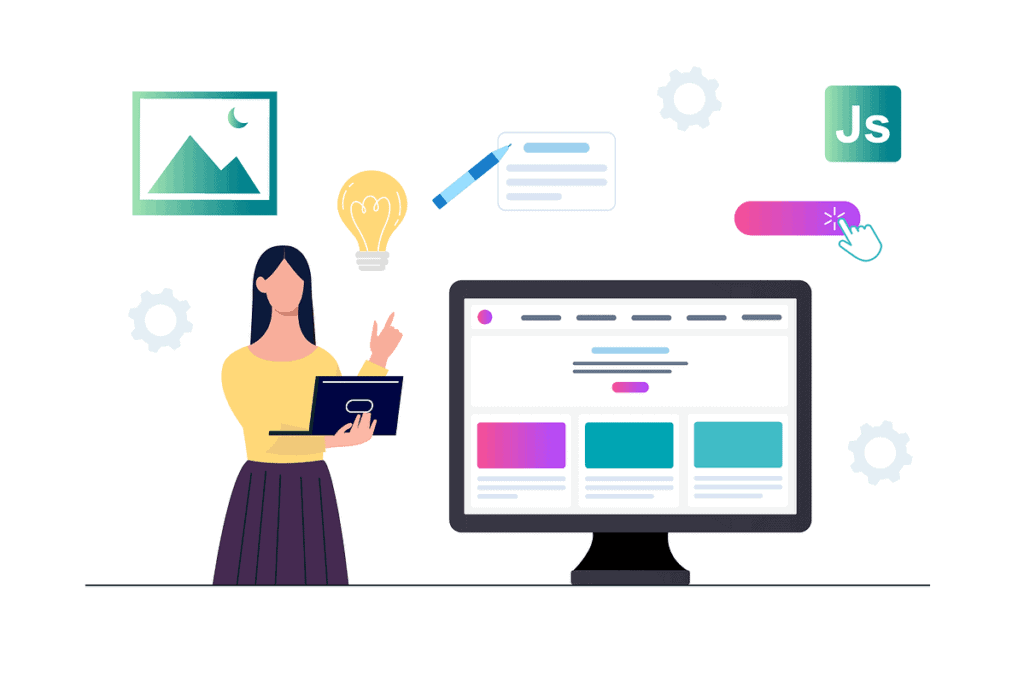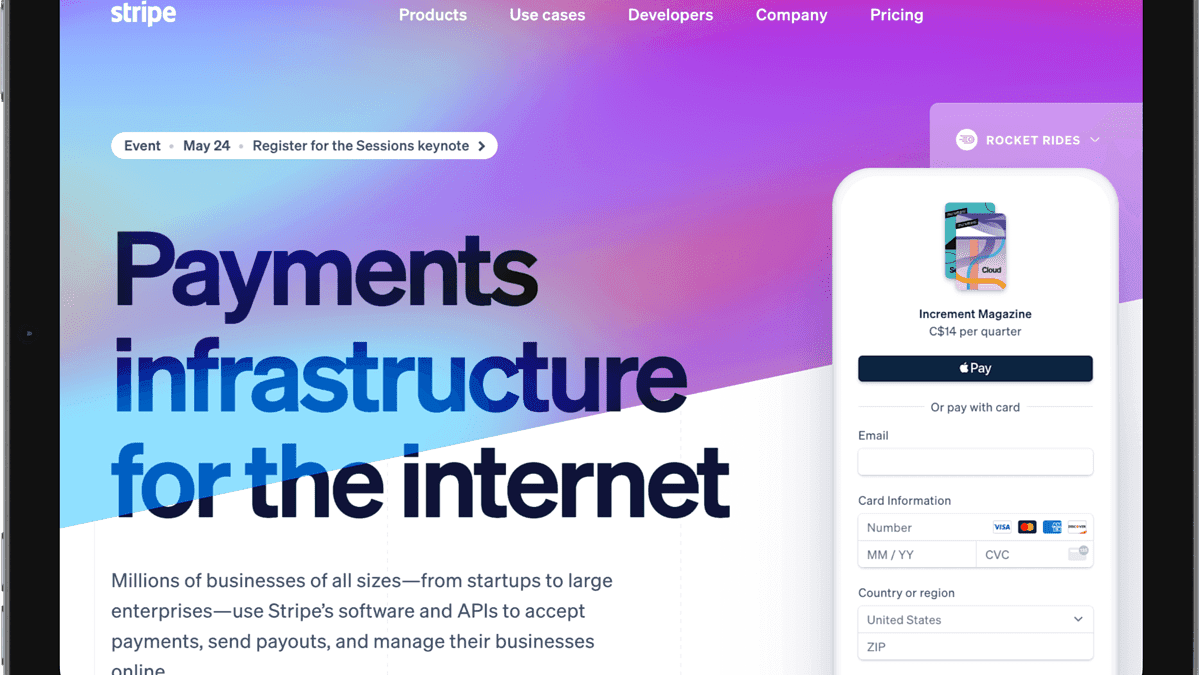Whether you are a business or life coach, or anything in-between, reaching and helping as many customers as possible with limited time and resources at your disposal is an important part of your job.
Coaching websites can go a long way toward promoting your business and helping others.
Do you want to create a better learning experience for your customers?
Do you want to take your coaching program to a global audience? Read on!

By creating a coaching website, you’ll not only generate awareness and leads but also convert visitors to new clients and nurture interested prospects and potential clients.
You’ll also be able to offer courses, training, and other educational materials that will benefit and support other coaches or your coaching clients.
Building a strong coaching community through your website can create a network of like-minded professionals who can share insights and collaborate on various coaching projects.
In this article, we’ll show you 10 examples of great coaching sites and look at what makes them so effective.
We’ll also show you how to build a website for your own coaching business with an all-in-one WordPress plugin with step-by-step instructions.
What Makes a Great Coaching Website?
A coaching website is an online storefront where you sell your courses and coaching services hosted on a domain.
The best coaching websites address customers and their needs and pain points head-on by tackling topics that are familiar or of interest to them and providing the resources and knowledge they’ll use to achieve their goals.
These sites can also be used to share important testimonials from customers and valuable information about your coaching business, pricing, and in general, your overall coaching process.
Let’s take a look at the various elements that make up the best business and personal coaching sites:
Web design catered to your branding
The more you can give your website a personal touch, the better the experience you’ll give your website visitors.
The visual language of your business (including the colors, fonts, and style) should carry through across all channels, whether you are posting on social media or compiling the final website design.
Use high-quality photos and clear copywriting on your homepage to create a great first impression and maintain a professional experience.
Most website builders will allow you to utilize your own brand collateral across all the relevant pages.
A functional built-in LMS
To coach students online and launch a professional coaching website, you should use a learning management system (LMS).
An LMS lets business owners create and offer online courses, videos, and other learning materials.
One of the key benefits of an LMS is that it will guide your students from module to module until they’ve completed the course so that they can derive the maximum benefit from your materials, even without hands-on support.
Ideally, your LMS should give you data about students, identify well-performing courses, and provide insight into the business side of things, including how to help your students succeed by identifying areas where they are struggling.
LMS features that will help achieve your goals include interactive quizzes, homework, and branded certificates that are generated upon completion to give your coaching clients a greater sense of accomplishment.
Sales and marketing tools
Don’t leave your website visitors in the dark about what you have to offer.
Make your sales offer clear with call-to-action (CTA) buttons, clear messaging, and a well-thought-out sales page.
Steer visitors through your site by using free downloads and other lead magnets like free online courses in key locations on your coaching website (for example, a highly-visited and engaging blog post or on your podcast notes).
You can exchange these free resources for readers’ emails so that you can capture and nurture those leads with automated emails and special offers over time.
You can create an affiliate program by adding partners who share your content with their followers in exchange for a small commission.
This commission can be easily managed via a link or a promo code.
Add social media buttons and a social media feed to show your visitors that you have an active community.
By displaying social proof and testimonials, you’ll gain a lot of credibility from the start.
A blog
A blog is an essential part of every coaching website, for two important reasons.
As a coach, your job revolves around the knowledge you have to share. Your blog is a great way of demonstrating that knowledge.
Secondly, your blog is an important discovery tool! It will help people find you if you incorporate an SEO blog strategy according to your ideal customer’s queries
and search engines will recognize your site as a valuable resource and rank it higher in search results, making it easier for potential clients to find you online.
Your blog can also help you build a personal connection with your audience. By sharing valuable insights, stories, and experiences, you can establish yourself as an authority in your coaching niche and create a sense of trust and rapport with your readers.
Payment options and plans
You can boost your revenue by introducing different payment options and packages on your site.
For example, you can introduce bulk orders for groups of clients like corporations, small communities, and schools.
You can also upsell other courses that match or are related to the course that the customer is buying.
For instance, if a customer wants to buy a public speaking course, offer them a speech writing course as well.
You can also ensure a steady stream of revenue by adding recurring payments for subscriptions and memberships.
Don’t ask customers to fill out an order form every time they want new content.
Try to create as little friction as possible by launching a monthly subscription of new and valuable content related to their ideal client’s needs or interests.
Top 10 Coaching Websites to Give You Inspiration
As a coach, you might have asked your clients to pick someone that they admire to try and emulate when achieving their own goals.
We’ve assembled a list of the top 10 coaching websites of 2023 to inspire you and provide some direction for your own coaching website.
1. Selena Soo, Publicity Coach


Selena Soo is a publicity and marketing specialist that teaches people how to use publicity to grow their business through press mentions.
Selena’s website is beautifully designed and well-branded.
She uses social proof with logos of publications where her work has appeared or where she was interviewed, along with a list of her most famous clients.
While she mentions her success and that she now runs a seven-figure business empire, she makes sure that her content is relatable by sharing her personal story and experience with coaching through a consistent aesthetic and beautiful design.
Her marketing savvy shines through clearly.
Upon arrival, visitors are immediately served with a lead generation pop-up that offers 12 months of story ideas they can use to win over the media.
When offering her programs, her call-to-action buttons ask visitors to submit an application, which gives them a level of exclusivity.
She also uses lead generation tools, including a free publicity checklist, that require interested visitors to supply their email addresses.
2. Graphic Change, Visual Ideas
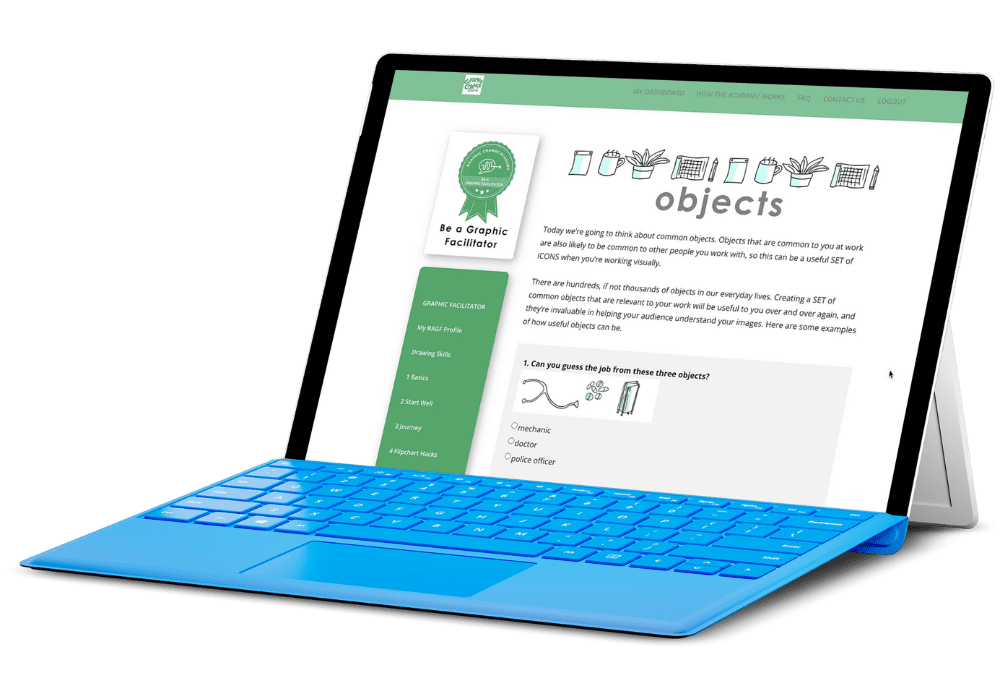

Graphic Change is different from the other sites on this list because coaching is not their main source of revenue.
The company offers illustrations to NGOs, startups, and other businesses that want to communicate their ideas visually.
They also have courses for training graphic artists and creating visual journals.
These courses have been positioned in such a way as to make their courses powerful marketing tools and give them greater credibility.
The courses have several modules that include video training, unlimited access, the ability to ask your instructor questions within the lesson, and several other features to keep the students engaged and motivated to finish.
The site is simple, easy to navigate, and puts promotions front and center with a header advising visitors about their latest special offer.
While they aren’t coaches per se, they certainly know how to sell courses and training materials (and how to leverage those assets).
3. Shannon Mattern, Website DIY Coach
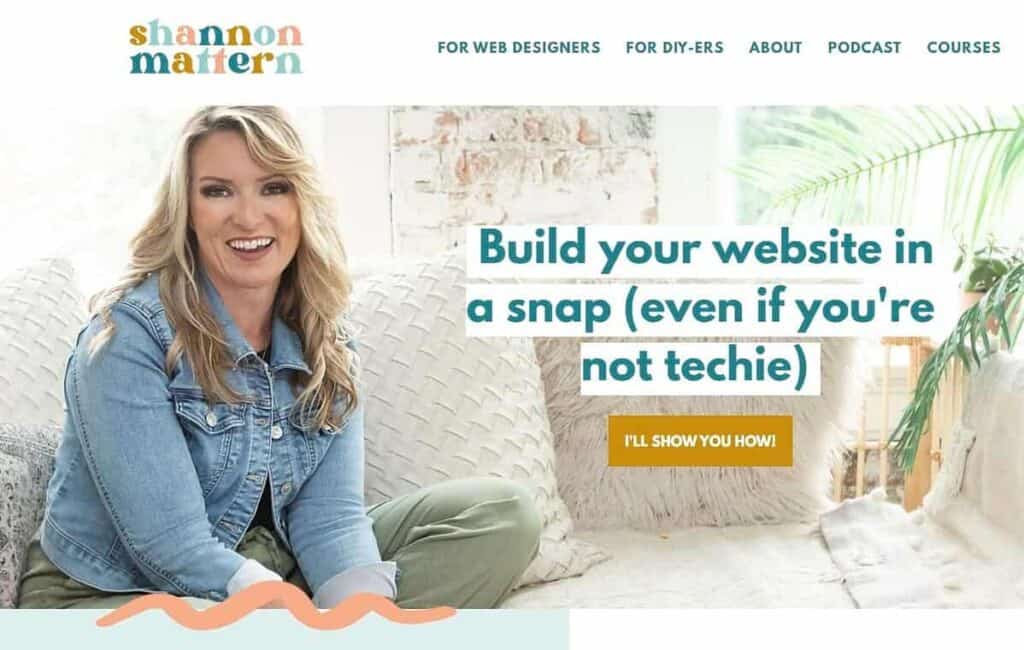

Shannon Mattern understands that setting up your own website is a challenge, so she coaches entrepreneurs on how to do it on WordPress.
She uses informal, unintimidating colloquial language throughout the entire site, with smart lead-capturing forms throughout and a minimalist design.
She’s also segmented her site so that she can target both DIY website builders and professional web designers with different messaging the minute they land.
Her branding is uniform across the many platforms she uses, which are all displayed at the bottom of her website.
A unique feature of Shannon’s website is clearly visible calls to join her affiliate program. It’s seen on her website footer and offers her community the opportunity to earn money by sharing.
Shannon also uses her podcast and podcast topics to educate visitors about her training courses and has several eye-catching lead-generation forms, including a “free training” sign-up form.
4. Valerie Silveira, Trauma Coach
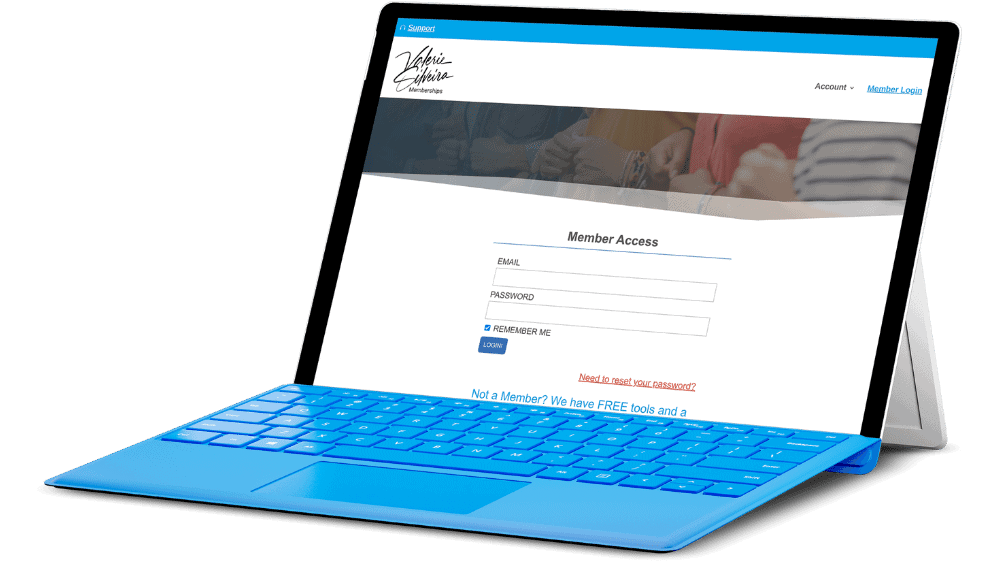

Valerie Silveira has several courses and packages to help her clients overcome trauma. Valerie’s specialty requires a careful and compassionate touch, so the site is not overly salesy.
Instead, she makes a real effort to handle visitors who may be seeking help with kid gloves.
There are several options for accessing direct support, and she uses encouraging language with bold colors.
Valerie uses her website to share why she’s qualified to help, shares her own background with trauma, and clearly delineates where visitors can find the programs she offers.
There are a few free tools she offers as lead magnets, as well as self-guided courses.
She uses videos and customer testimonials, along with logos from publications where she has been featured, to emphasize her expertise throughout.
She also shares helpful, free contextual tips.
For example, over Thanksgiving and the holidays, she posted tips on dealing with the festive season, as the period can be difficult for trauma survivors.
5. Becca Tracey
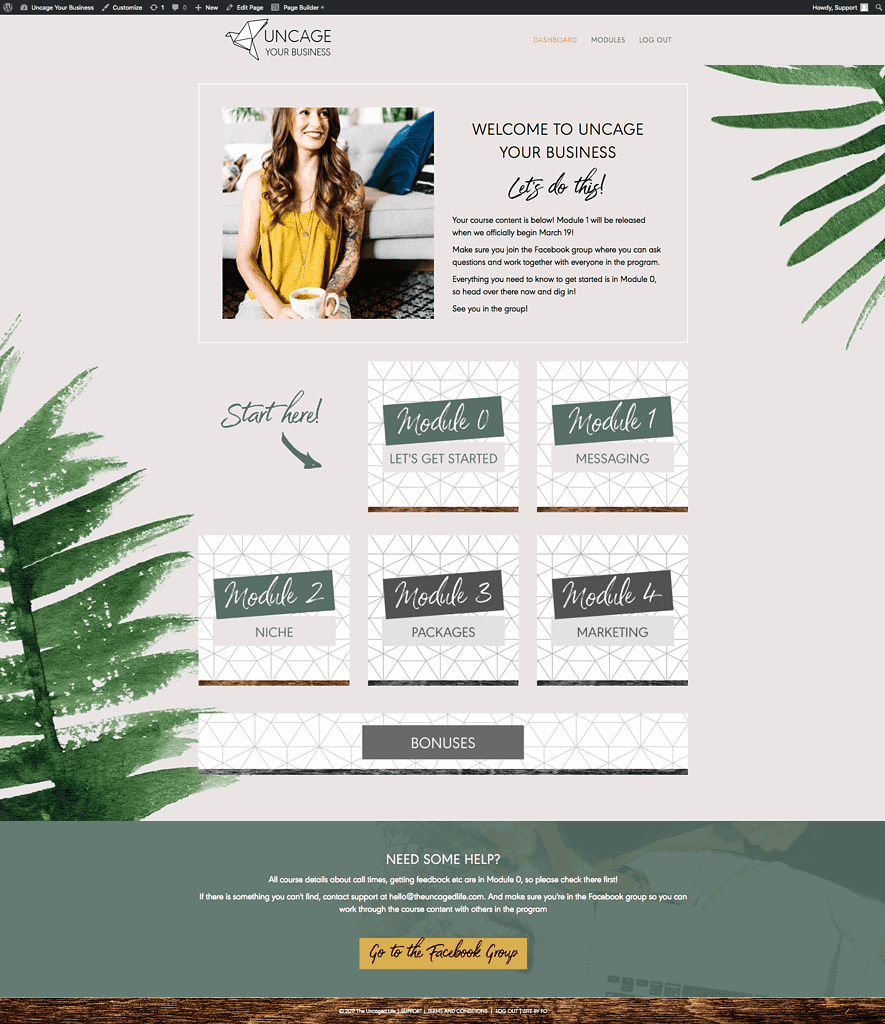

Becca Tracey coaches entrepreneurs, small business owners, and solopreneurs in the art of landing clients for their own online businesses.
Her site, The Uncaged Life, is used to promote her workshops.
There is a lead-capturing form that gives visitors a free business-building checklist in exchange for their personal details, several engaging testimonials from clients, a list of sites that have publicized her work, and clear calls to action asking visitors to sign up.
Becca uses her own image and unintimidating language throughout her website to make it feel more personal and relatable.
When you visit the courses page, a chatbot (using Becca’s name and picture) pops up and invites you to ask questions.
6. Kendrick Shope
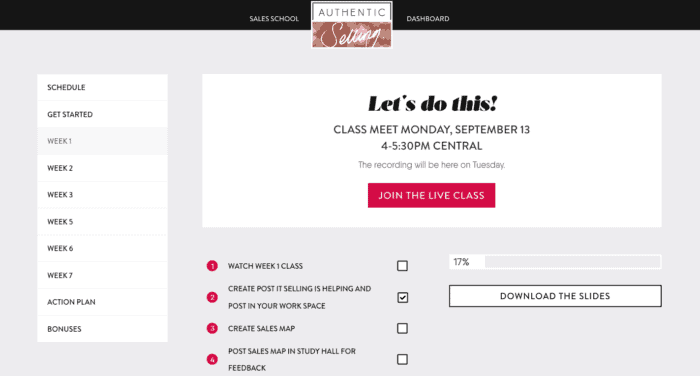

Kendrick Shope is a sales and business coach. She offers executive coaching to struggling businesses or salespeople that want to boost their skills.
She keeps her site extremely simple and clear.
There are several testimonials from high-profile clients and celebrities praising her skills, as well as a clip of Kendrick being interviewed by Steve Harvey (who offered to buy a BIC pen from her for $500)!
Instead of focusing on the content of her courses, Kendrick focuses on the motivation a visitor might have for visiting her site or enrolling in a course.
She asks questions like, “Are you spending hours doing all the things but still not landing paying clients?” or “Do you post on social media but are not seeing the traction you expected?”
She taps into her customer’s pain points to encourage them to sign up with clear, simple call-to-action buttons and very simple sign-up forms requiring little more than your name and email address.
7. Sexy Food Therapy
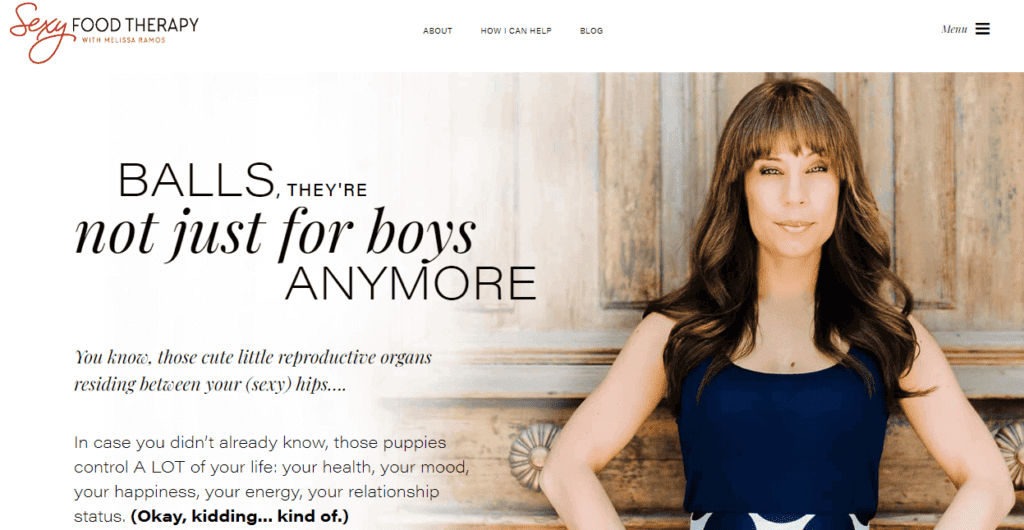

Sexy Food Therapy is a health coaching and wellness program by Melissa Ramos.
It focuses on helping women achieve better hormonal health.
The site grabs visitors’ attention immediately with its cheeky language and bright, positive imagery.
Women are invited to become “lady ballers” and address sensitive topics like PMS, PCOS, and menopause head-on.
There are several useful features, including links to Melissa’s free vlog, recipe collections, and blog.
Calls to action are kept to a minimum, but there are several links to social media sites and Melissa’s other programs to keep your attention and encourage sign-up.
Melissa has a unique and refreshing approach to coaching that resonates with her target audience, making her website stand out in the health coaching niche with vibrant color schemes.
8. Step into your Moxie
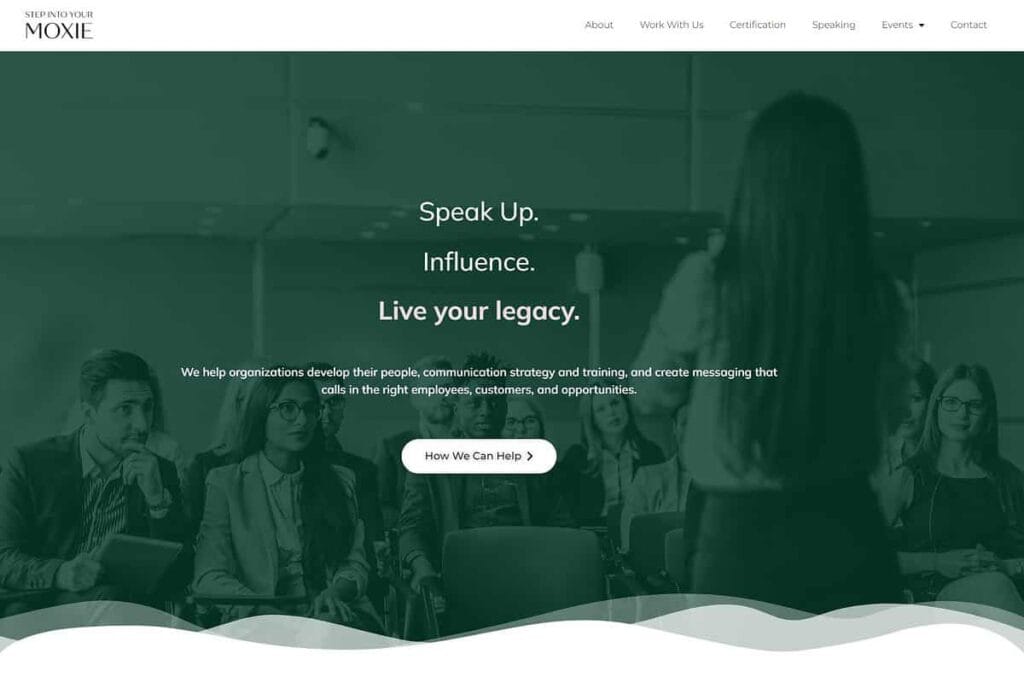

Step into your Moxie offers in-person and online courses to coaches.
You can achieve certification through the site, find workshops to attend, or access other resources.
The site is run by coach Alexia Vernon, and while there are several links that enable you to work with her directly, the site uses vague language (e.g., “Work with Us,” “How We Can Help”) to create an impression that the organization is much bigger than just Alexia and a few team members.
The headings and navigation are extremely well-positioned and thought-out, making it easy for casual visitors to find what they are looking for.
9. Monkeypod Marketing
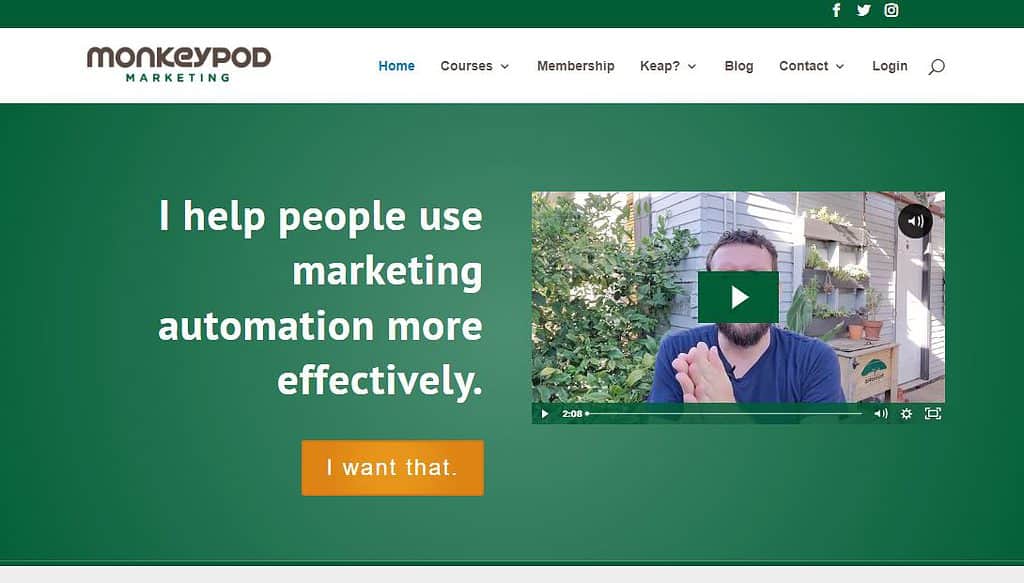

Monkeypod Marketing is a coaching site for people that need help with marketing automation using the Keep CRM system.
The home page features a brief explainer video and then two options for signing up: a membership program or virtual courses.
It’s extremely easy to navigate, with several options and offers for visitors to choose from.
When you visit the site, a pop-up appears with a simple menu with different options to help visitors meet their goals, e.g., “I want to improve the way I use Keap,” “I want someone to do the campaign building for me.” It’s a great way to boost conversions.
There’s also an informative blog and case studies to help visitors understand the process and benefits.
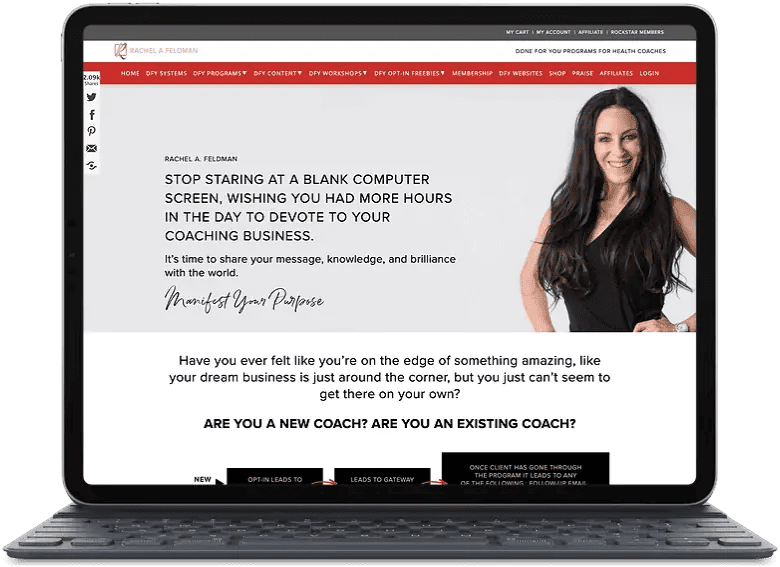

Rachel Feldman’s health coaching website uses videos on her page to entice visitors to choose her and sign up for her courses.
Her sales page provides a clear list of products, which include memberships with recurring payments for health coach content and ideas that they can sell to their clients.
Rachel’s clear call to action on her landing page uses language targeted at her intended audience, and pulls out key words and phrases like “6-figure”, “proven”, and “thousands” to entice website visitors to convert.
Using AccessAlly to Take Your Coaching Website to the Next Level
Although all of these websites are very different, they have a few things in common.
They all use effective branding, marketing, and sales tools, which they access via an all-in-one LMS plugin, AccessAlly.
AccessAlly is a powerful WordPress plugin for coaches of all disciplines who want to do more than coaching.
With AccessAlly, businesses can sell courses, memberships, communities, and so much more with ease.
AccessAlly helps coaches:
- Design their website according to their branding and add any social proof, social media and other elements they want to add to their site;
- Create and sell online courses with drip content for students, quizzes, certificates, and more;
- Offer innovative coaching memberships;
- Write and share blog posts to increase the SEO of their site;
- Manage their students with a login and facilitate easy follow-ups;
- Use gamification tools to keep students engaged and progressing with the courses they enroll in;
- Add recurring subscriptions and turn happy customers into affiliates with the affiliate marketing tool.
In other words, AccessAlly enables coaches to access everything they need – in one place – without integrating with an endless number of plugins to achieve the same result (but with more bugs and issues and at a much greater cost).
Visit AccessAlly today to try it out for yourself and take your business to new heights.

